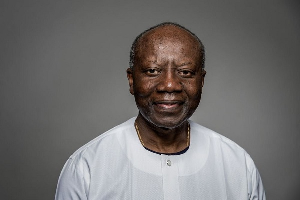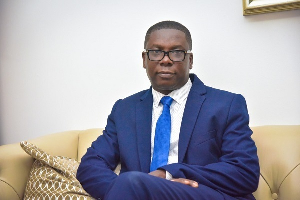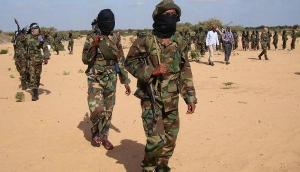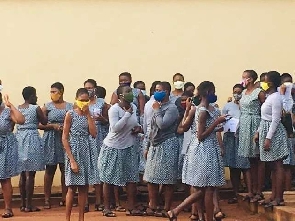Terrorism has assumed a scale never before seen in the bloody annals of mankind. It poses a serious threat to the African continent, and terrorist activities remain a major threat to security and development in the West African sub-region.
The terrorist group Boko Haram continues its indiscriminate attacks against civilians not only in Nigeria, but also in Niger, Chad, and Cameroon. Terrorist attacks have taken place in Mali, Burkina Faso, and recently in Côte d’Ivoire.
A cursory look at cross-border crimes and security related issues indicates that most borders in West Africa are porous. Terrorists can, therefore, cross into various countries undetected and with ease.
Ghana shares borders with 2 of the countries that have experienced terrorist attacks recently. The possibility of a terrorist attack in Ghana is a clear and present danger. This is because most of the conditions that exist in the West African countries to have experienced terrorist attacks exist in Ghana as well.
In this regard, there is the need to put in measures to prevent or minimise the risk of terrorist activities in Ghana. Several ideas and discussions on terrorism prevention or mitigation in Ghana have taken place.
Key among them are regional cooperation, intelligence sharing, and adequate economic support for the populace. This write-up seeks to proffer additional ways by which terrorist activities may be prevented or minimised in Ghana.
The very moment terrorists get a foothold or any form of control in a country, authorities may now have to resort to reactionary steps.
It is better to be a step ahead in national security most especially through anticipatory intelligence. Indeed, not all countries maintain offensive counterintelligence and counter terrorism capability, and, obviously, not all states can have a worldwide security presence.
Nonetheless, with terrorist activities “hovering” just at the peripherals of Ghana, there is the requirement for the establishment of a COUNTER-TERRORISM UNIT.
A well-resourced counter-terrorism unit should be established and mandated to detect, identify and monitor all forms of terrorism threats to Ghana.
The unit should be capable of forewarning planned attacks and have a quick reaction team capable of carrying out arrests and/or direct combat with terrorists.
The counter-terrorism unit should further be required to analyse the demographic profile of the country, and closely observing potential breeding areas.
The critical characteristic of the counter-terrorism unit should be to neutralise any form of terrorism before it takes place.
Considering the availability of well-trained and motivated personnel, the counter-terrorism unit should be a component of the Ghana Armed Forces.Moreover, Ghana does not have the financial resource to immediately set up such a unit, therefore making the counter-terrorism unit a component of the Ghana Armed Forces would be ideal, prudent and more cost effective.
One of the key elements that terrorists live and survive on is publicity. They crave publicity to push and expand their ideologies. It is due to this that one group or the other usually claims responsibility for a terrorist attack.
The terrorists also go through painstaking efforts to record and publicise torture, cruel, inhuman, degrading treatment or punishment. It is advisable to implement a MEDIA COVERAGE BLACKOUT for any terrorist activity that may take place in Ghana.
No mention of it whatsoever should be made in any print, electronic or social media.
A media coverage blackout may seem challenging but it is not impossible. Indeed most reputable international media houses no longer publicise images or videos of torture, cruel, inhuman, degrading treatment or punishment from terrorist groups.
A study of the origin and nature of terrorism indicates that the basis and foundation of modern day terrorism as experienced in the U.S.A., parts of Europe and West Africa is ideology.
This involves the carefully skewed beliefs and theories that the terrorist groups propound. COMBATING AN IDEOLOGY is difficult. An ideology cannot be defeated simply by engaging in a kinetic warfare. Ghana should, however, start a non-kinetic warfare on terrorism.
This may include psychological operations to win the hearts and minds of the target group, and addressing push/pull factors.
The non-kinetic warfare on terrorism in Ghana will aim at persuading, coercing, and shaping the mindset of the target group. This can be spearheaded by the proposed counter-terrorism unit along with national media and other stakeholders.
To conclude, the likelihood of Ghana going to war with another state is little. The emerging threats Ghana and West African countries must contend with are threats from non-state actors, and critical among them is terrorist groups.
Opinions of Wednesday, 30 March 2016
Columnist: Fiifi Deegbe, Major















